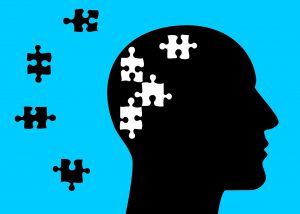What’s one thing you have to do over and over, day after day? No, we’re not talking about explaining to your child why they have to wear pants, or reminding your coworkers to unmute themselves. We’re talking about what seems to be the defining feature of adulthood: making an endless stream of decisions. This includes everything from minor things like what to make for dinner to more complicated decisions about your finances, emotional life, and physical health. And now, experts are telling us what we’ve all suspected all along: all of these decisions that need to be made, no matter how small, can really start to weigh on us, and lead to what’s called “decision fatigue.” So is decision fatigue stressing you out, and what can you do about it?
What Is Decision Fatigue?
Roy F. Baumeister, a social psychologist who coined the term “decision fatigue,” used it to refer to the mental exhaustion that comes from having to make a lot of decisions throughout your day, as well as the decline in the quality of decisions that you make after being faced with this multitude of choices.  Decision fatigue is different from physical fatigue – you probably don’t even recognize that you’re “tired,” it’s more that you’re low on mental energy. According to Joe Martino, a licensed counselor, “Recognizing it can be tricky because it will often feel like a deep sense of weariness.” But it could be that all the decisions you have to make during the day are dragging you down, whether you’re:
Decision fatigue is different from physical fatigue – you probably don’t even recognize that you’re “tired,” it’s more that you’re low on mental energy. According to Joe Martino, a licensed counselor, “Recognizing it can be tricky because it will often feel like a deep sense of weariness.” But it could be that all the decisions you have to make during the day are dragging you down, whether you’re:
- Overwhelmed with too many choices at once
- Faced with too many decisions in a row during the day
And, as you might have guessed, and as Baumeister recognized, your reaction to these scenarios is probably going to end up being less than ideal. The first scenario might not seem like such a bad thing – after all, why would restaurants have menus if humans didn’t like to have options? But according to Carla Marie Manly, PhD, a clinical psychologist in California, “Although humans tend to enjoy having a variety of choices, too many choices can lead to mental and emotional exhaustion. For example, having too many options—whether in the grocery store, catalog, or online retailer—can lead to feelings of confusion and dissatisfaction.”
Hey, we get that, and so should anyone who’s ever even seen the cereal aisle at the grocery store, or the books that pass as menus in some restaurants. Being faced with all of those choices at once can easily lead to what’s known as “choice paralysis,” which can be incredibly frustrating.
And the second scenario can be even worse: being faced with too many decisions all throughout your day can lead to two outcomes:
- You give up and stop making decisions at all
- You start making impulsive, irrational decisions
Both of these outcomes are problematic. You’ll again either be struck with choice paralysis and will be unable to move forward, the frustration of which could lead you to lash out at the people in your life. Or you could end up acting recklessly and impulsively instead of using the energy needed to think things through and consider the consequences. This can result in you doing things like splurging on things you don’t need, tweeting things you should keep to yourself, or sending out an angry email response to someone.
Sound familiar? It’s likely that you’re being bombarded with decisions at work and at home, and are suffering from decision fatigue by the end of the day. So before you throw up your hands and eat ice cream for dinner, let’s talk about how to recognize the signs of it!
Is Decision Fatigue Burning You Out?
Again, as many psychologists have pointed out, decision fatigue can actually be fairly difficult to recognize, especially if it’s not something that’s on your radar as a cause for why you’re feeling and acting the way you are. But being aware of the following signs that you might be headed toward burnout is the first step towards avoiding the worst consequences of decision fatigue. According to Rashmi Parmar, MD, a psychiatrist with Community Psychiatry + MindPath Care Centers and Carla Manly, you should look out for things like:
- Having trouble focusing
- Procrastinating
- Avoiding being in situations where you have to make decisions
- Frustration, irritability, and a short temper
- Being impulsive
- Feeling overwhelmed and possibly even hopeless
- Spending a lot of time making decisions
- Physical symptoms like fatigue, poor sleep, headaches, upset stomach, etc.
- A sense of dissatisfaction with the choices you make
If you see yourself in the signs above, it’s time to find some strategies for coping with decision fatigue.
How Can You Cope with Decision Fatigue?
Unfortunately, all of those decisions you have to make every day aren’t just going to go away. But you can be proactive and work on ways to limit the decision fatigue that often weighs on all of us. Try the following:
Stick to a routine
Don’t get us wrong, being spontaneous is great, but you can actually help to reduce decision fatigue by sticking to a set routine each day. This will help eliminate the need to make decisions for at least some of your routine tasks, like what time you go to bed and get up, what food to eat, days you’ll exercise, and when you go grocery shopping.
Plan ahead

To minimize the amount of little decisions you have to make each day, try planning ahead for the next day. In fact, you can make this planning a part of your routine before going to bed: for example, lay out your clothes, make some overnight oats, and pack a healthy lunch. According to Martino, “What people don’t realize is that things that have very little impact on our lives can actually take a lot of decision energy. Try to limit those by choosing them the night before.” And you know what else? When it comes to small decisions, it’s ok to simply choose the thing that makes you feel less overwhelmed, or that is the easiest choice right now.
Make specific times for big decisions
But what about those big, necessary decisions in your life? For those, it’s all about timing. For everyday impactful decisions, try your best to schedule them for the morning, before decision fatigue has a chance to set in. You might even want to make a list of your priorities for the day to make sure you tackle your top ones first.
For other big decisions, Martino suggests that you stop and question yourself before making them: “I think the best question to ask is: How much impact on my life will this decision have?” If it’ll have a big impact, only make it if you’re feeling refreshed. Or even better, have time each week or month when you deal with these big life decisions.
Simplify your choices
Overwhelmed with choices? Try this: narrow your options down to three – and, most importantly, don’t question yourself! Evaluate your final three options and choose one, remembering again NOT to question your final choice. Embrace your selection and move forward, and always try to avoid impulsive decisions.
Have a little help from your friends
If a decision is feeling like too much for you, try sharing the burden! If it feels like it will be helpful, try talking to a supportive friend, partner, or coworker and getting their input. It might even be good for you to do some delegating to take some of the mental load off of you. For example, if meal planning is stressing you out, ask your partner or roommate to take over for a bit, and offer to do the shopping for ingredients in return.
Practice self-care
Finally, as with all problems that can start to overwhelm us in life, it’s important to take care of yourself. Remember to:
- Eat healthy snacks (and never make decisions while hungry!): Baumeister’s research found that low glucose levels made a big difference in decision making.
- Take regular breaks in your day to replenish your brain and energy levels.
- Get enough sleep
- Celebrate yourself when you make good decisions
So now you know: if you’re feeling irritable, unfocused, stuck, or overwhelmed it could be that all the decisions of the modern world are just piling up on you and causing decision fatigue. Those negative feelings are signs that it’s time to work at conserving your energy, and you can start by making a few simple changes to lift the load of some of those decisions. Let us know: is decision fatigue burning you out?





